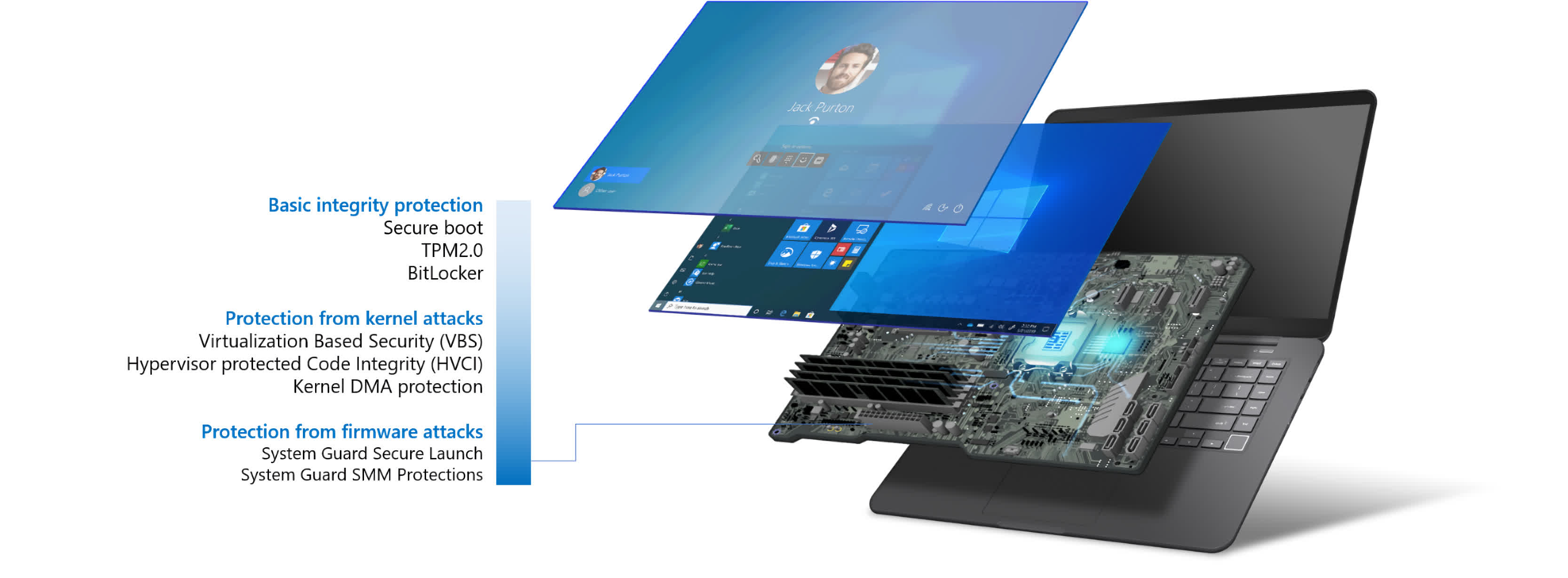A hot potato: The Trusted Platform Module standard describes a dedicated cryptography chip designed to manage many security-related tasks in a computer. The standard was introduced in 2009, but Microsoft recently decided to enforce a TPM requirement on every Windows 11 PC, which has seen heavy pushback since launch.
While announcing Windows 11, Microsoft made a very controversial move to change hardware requirements significantly. The latest edition of the most popular PC operating system cannot run or even be installed under normal conditions if the CPU is a few years old or the motherboard doesn’t include a specialized piece of crypto-hardware (or related firmware emulation) known as Trusted Platform Module (TPM).
Senior Product Manager Steven Hosking recently revealed that Microsoft is reinforcing the idea that the TPM requirement is here to stay, and there will be no compromises even after the end of mainstream support for Windows 10. Redmond believes TPM technology is crucial to safeguarding Windows security and is even more essential when considering the future of the Windows ecosystem.
Hosking explained that TPM’s primary role is to offer hardware-level security features for a compatible computing device. The chip can securely store encryption keys and certificates. It can also shield passwords and sensitive data against misuse and unauthorized access. The TPM chip can also provide a random number generation engine, encrypt or decrypt data, and verify digital signatures.
Windows 10 users will not receive security updates after October 2025 unless they pay for them. Microsoft concedes that the almost aging operating system is approaching the end of support. Still, the company is unwilling to remove or weaken the TPM 2.0 requirement from Windows 11 hardware specs to facilitate the upgrade from Windows 10.
Hosking said that a TPM 2.0 chip addresses many security challenges in a constantly evolving digital world, providing improved support for industry-standard cryptographic algorithms and increased isolation for security processes. Furthermore, TPM 2.0 offers a “seamless” integration with Windows 11 security capabilities, including encryption key storage, Secure Boot, and multifactor authentication.
“By instituting TPM 2.0 as a non-negotiable standard for the future of Windows, we elevate the security benchmark,” Hosking stated.
The TPM chip is essential for the present, especially future Windows platforms, providing enterprise customers with additional management options. Pardon the sarcasm, but this must be why people are still flocking to Windows 10 in droves, regardless of the operating system’s waning lifecycle.






